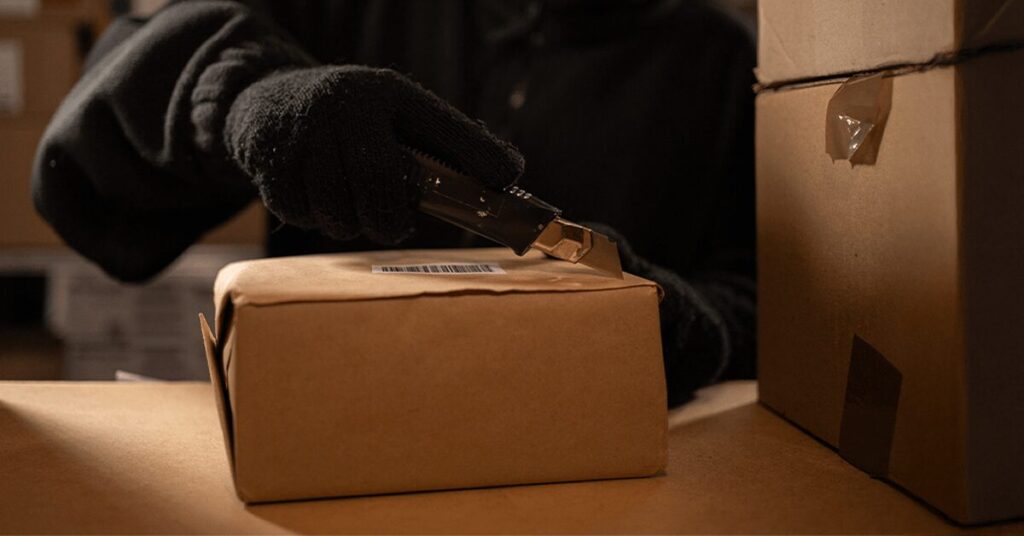BLOG POST
Cargo Theft Prevention

Reading Time: 3 minutes
The holidays are the peak season for a lot of things in the shipping world. Volumes are usually at their highest as businesses see their biggest sales of the year. Another thing that peaks during the busy holidays, unfortunately, is cargo theft - and the trend is on the rise.
Why are the holidays prime time for cargo thieves? As shippers and carriers are inundated with increased shipping volumes of desirable goods, thieves have an opportunity to take advantage of the unwary and unprepared, who are occupied trying to balance increased stress levels with an increase in yuletide cheer.
Why is cargo theft increasing?
Thieves are getting savvier when it comes to stealing shipments, which is resulting in increased reports of theft. In particular, pilferage, which is the theft of a single pallet or just a few shipping boxes, is getting more common due to the difficulty of detecting and tracking such thefts.
What products are being targeted?
Cargo thieves aren't dummies - they target items that they know will sell easily on the black market. The "hot" items that are particularly appealing to cargo thieves evolve with the times and as criminals change their tactics.
The items most commonly targeted by cargo thieves in recent years are:
- Food and beverages. Thieves have homed in on these perishable items in recent years because they're a constant, high-volume target. They're very popular during the holidays, and they're also quickly consumed.
- Household goods. With more people working from home compared to a decade ago, home repairs and improvements have taken off. Where there's demand, thieves see opportunity.
- Electronics. These valuable items are a classic target for cargo theft with their high cost and higher volumes during the gift-giving season.
How can carriers (and you) prevent cargo theft?
Carriers are very aware that thievery is on the rise and are taking additional steps to prevent cargo theft. Some methods taken to foil would-be thieves include:
- Enhancing vehicle and shipment tracking and investing in remote immobilization equipment for stolen vehicles.
- Increasing routine and unannounced security audits. Thieves take advantage of the complacency that often comes with the work habits and patterns of carrier employees. By mixing up the audit timing and frequency, carriers can deprive thieves of security gaps that can be golden theft opportunities.
- Considering security when determining shipment routing. Locations such as parking lots, secured yards and distribution centers are prime hunting grounds for cargo thieves. Carriers can deter theft by ensuring sufficient lighting, perimeter fencing, alarm systems and backup generators.
Just as freight carriers are taking extra precautions to address the rise in thievery, there are several things your business can do to promote cargo theft prevention:
- Conduct careful screenings and background checks of your current and potential employees. A high percentage of cargo thefts are at least partially "inside jobs" where an employee of the victimized business provided information or other aid to the thieves.
- Educate your staff (and yourself!) on shipment security best practices and promote a culture of security in your company.
- Ensure you completely and carefully fill out your shipments' bills of lading (BOLs) in case documentation is needed due to theft of some or all of the freight.
- Consider adding shipping insurance to your high-value shipments for peace of mind and protection in case of theft.
What can you do if your freight is stolen?
Despite your best efforts and those of your carrier, cargo theft can still occasionally occur, especially during the busy holiday shipping season. If some or all of the items in one of your shipments are stolen, you have recourse available to you in the form of a shipping claim.
A freight shipping claim is a statement from your business declaring that the carrier breached your contract by not delivering your entire shipment safe and sound. As mentioned above, the BOL you created at the time of the shipment should have been accurately and completely filled out for just such a situation.
Once you or your customer determine that there are missing items from a shipment, you'll need to immediately notify the carrier of your intent to file a claim, prepare the appropriate documentation and officially file your claim. We have a full breakdown of the shipping claims process for you here.
Filing a shipping claim is never fun or simple, but if you have an expert by your side, it can be easier. A proven third-party logistics partner, like Worldwide Express, has a specialized freight shipping claims team to walk you through every step of the process.
Rely on our freight shipping expertise
We know the pressures of shipping during the busy holiday season, and along with assisting you with claims, Worldwide Express has the experience and expertise to help you minimize the risk of cargo theft during peak shipping season and beyond. Get started with a free shipping consultation today!





